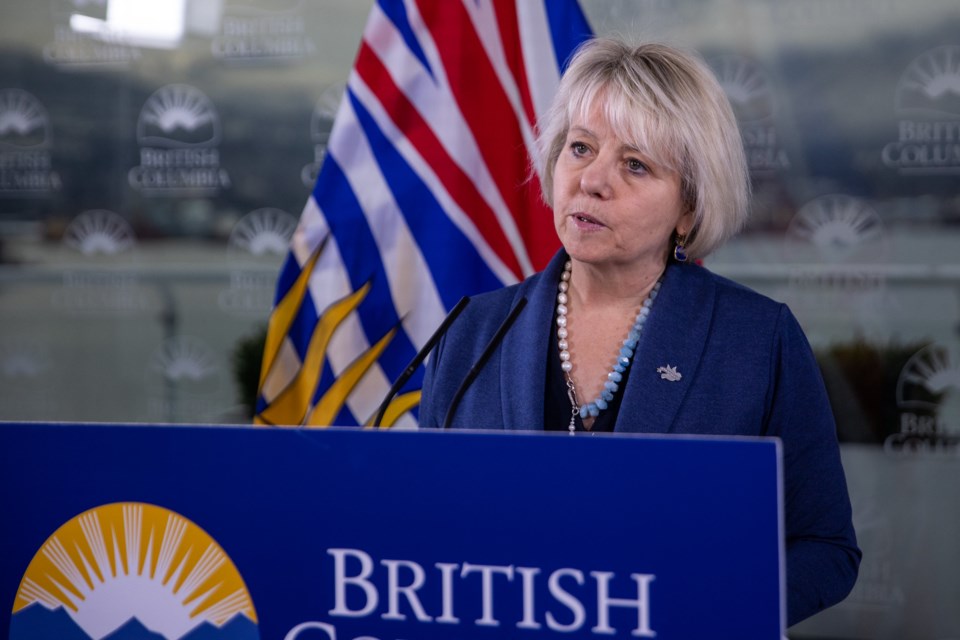With the Omicron variant causing runaway transmission of COVID-19, rendering contact tracing ineffective, employers in B.C. are being urged to prepare for a wave of staff being forced off the job by illness.
During a news conference Tuesday, provincial health officer Dr. Bonnie Henry said she is trying to get out of the business of issuing public health orders to manage the pandemic.
“I do think it is over to the [private] sector,” to mitigate certain risks associated with the pandemic, Henry said, explaining many vaccinated people will likely contract a mild form of the virus in the coming weeks.
Most vaccinated people will be protected from serious illness or hospitalizations, she said.
“Across the board in the next few weeks, we'll be dealing with high numbers of people who are off ill,” Henry said.
“For most of us, thankfully because of our vaccinations, that will be mostly mild illness. But the interruption to our business continuity is something that we now need to think more carefully about.”
“It’s not about public health orders,” Henry continued.
“This is about activating all of those layers of protection available for your business, in your situation, to keep you from having to shut down because we don't have enough people to operate.”
The Omicron variant is now responsible for 80% of COVID-19 cases in the province. Last week, B.C. reduced its isolation requirements for COVID-19 cases in vaccinated people to just five days.
“This strain of the virus is different, it’s considerably different in how it presents in the shortness of the incubation period and the shortness of the illness for many people,” Henry said.
She called public health orders “a last resort” that bring with them significant downsides to mental health and wellness.
“If we don't have schools open in person, for example, that can affect children for decades to come,” Henry said.
“We don't have to force people to close to be able to get people to do the right thing and to take, those measures that get us through this," she later said.
When asked for evidence related to the transmission of COVID-19 in gyms, which were ordered to close at the end of December, Henry could not offer specifics.
“I can't tell you every single case that's been linked to a gym, but we can tell you that there that we've seen this as a pattern, that these are environments that are higher risk.”
While gyms have done nothing wrong, Henry said "reputable" gyms understand "that they're not going to put their staff and clients at risk when we're seeing the amount of transmission that we're seeing right now."
Despite the phased return to school this week, Henry said schools remain safe and are not a major source of transmission in the community. She noted that COVID-19 remains a mild illness in most children, and additional layers of protection are now available in the form of vaccines.
Health Minister Adrian Dix revealed hospitalizations have only increased slightly alongside the surge in cases.
B.C.’s hospital system now has 9,229 base beds and 2,253 surge-capacity beds, for a total of 11,582 beds. As of Tuesday, there are 9,034 people in the hospital.
There are 510 base critical care beds and 218 surge capacity ICU beds. Across B.C., there were 454 people in the ICU on Tuesday.



